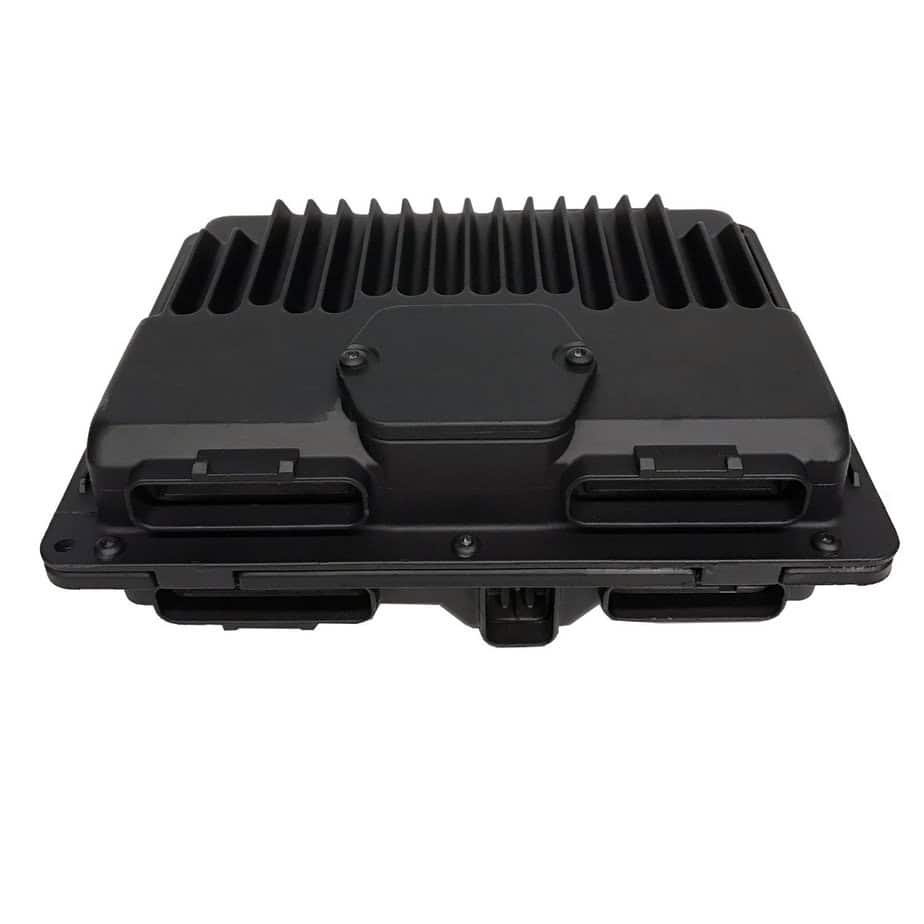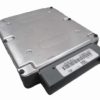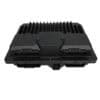Is Your 1997 GM Truck or Van Plagued by Mysterious Issues?
If you’re experiencing frustrating and seemingly random problems with your 1997 Chevrolet Astro, GMC Safari, or other compatible GM vehicle, the root cause might be the very brain of its operation: the Powertrain Control Module (PCM). A failing PCM can lead to a cascade of issues that can be difficult to diagnose, from poor engine performance and stalling to a complete no-start condition. This replacement PCM, part number 16229684, is the definitive, reliable solution to restore your vehicle’s factory performance and get you back on the road with confidence.
Common Symptoms of a Failing PCM
A faulty engine computer can manifest in numerous ways, often mimicking the failure of other components. Before you continue replacing sensors and parts, check if your vehicle is exhibiting any of these classic signs of PCM failure:
- ✔ Check Engine Light: The light is illuminated, often with communication-related diagnostic trouble codes (DTCs) like U-codes, or codes pointing to multiple unrelated sensor failures.
- ✔ No-Start Condition: The engine will crank over but refuses to start, indicating a potential lack of fuel or spark command from the PCM.
- ✔ Poor Fuel Economy: A sudden and unexplained decrease in your vehicle’s MPG is a strong indicator that the air/fuel mixture is not being managed correctly.
- ✔ Erratic Engine Behavior: Experiencing rough idling, stalling at stops, hesitation during acceleration, or engine misfires can all be traced back to a faulty module.
- ✔ Transmission Problems: The PCM also controls automatic transmission shifting. Harsh shifts, delayed engagement, or getting stuck in a single gear can be caused by a failing computer.
- ✔ Failed Emissions Test: An inability to pass a smog check is often due to the PCM’s failure to properly manage the engine’s combustion and emissions systems.
From the Diagnostic Bay
We once had a 1997 GMC Jimmy come into the shop with a persistent, random misfire on cylinder 3. The owner had already replaced the spark plug, wire, distributor cap, and rotor, and even went as far as replacing the entire fuel injector spider assembly. The misfire remained. After hooking up our diagnostic scope, we noticed the injector driver signal from the PCM was dropping out intermittently. The computer itself was failing internally, but only for that one circuit. We installed a VIN-programmed PCM just like this one, and the truck ran perfectly. It’s a classic case of how a failing PCM can send you on a wild goose chase, replacing perfectly good parts.
The Solution: A VIN-Programmed 1997 Astro PCM
Don’t settle for a generic, off-the-shelf computer that requires an expensive trip to the dealership for programming. We take the hassle and expense out of the process. When you purchase this module, you provide us with your vehicle’s 17-digit Vehicle Identification Number (VIN). Our technicians then use that information to flash the module with the latest, most up-to-date software directly from GM. This ensures that the PCM is a perfect match for your vehicle’s specific configuration, including engine size, transmission type, and emissions equipment. It arrives at your door ready for a straightforward installation.
Installation and Post-Install Procedures
Physically swapping the module is typically a simple process. It’s located in the engine compartment, usually on the driver’s side by the battery or fender. After disconnecting the battery, you simply unplug the electrical connectors, unbolt the old unit, and install the new one. However, a critical final step is required: the security relearn procedure (often called a CASE or Passlock relearn). This syncs the new PCM with your vehicle’s anti-theft system. This procedure can usually be done without special tools and involves a series of key cycles. We provide clear instructions to guide you through this simple but essential process.
Guaranteed Fitment for Your 1997 GM Vehicle
This Electronic Control Module is a direct replacement for part number 16229684 and 8162296840 and fits a wide range of popular 1997 GM models, including:
- ASTRO & SAFARI
- BLAZER S10/JIMMY S15 (4.3L)
- BRAVADA (4.3L)
- CHEVROLET & GMC 1500/2500/3500 PICKUP (Gasoline)
- EXPRESS & SAVANA 1500/2500/3500 VAN (Gasoline)
- ISUZU HOMBRE (4.3L)
- S10/S15/SONOMA (4.3L)
- SUBURBAN 1500/2500 (Gasoline)
- TAHOE & YUKON (Gasoline)
Frequently Asked Questions
Do I need to have this module programmed by a dealer?
No. We handle all the programming for you before we ship the part. Simply provide your vehicle’s VIN during or after checkout, and it will arrive ready to be installed.
What is a VIN and where do I find it?
The VIN is your vehicle’s unique 17-digit serial number. You can typically find it on a metal plate on the driver’s side of the dashboard (visible through the windshield), on the driver’s side door jamb sticker, or on your vehicle’s registration and insurance documents.
Will this fix my transmission shifting problems?
If the erratic or harsh shifting is caused by a faulty PCM, then yes, this part will resolve the issue. The PCM controls the transmission’s electronic solenoids, so a failing module is a very common cause of shifting problems.
Is any special procedure needed after I install it?
Yes, you will need to perform a security relearn procedure to sync the new PCM with your vehicle’s anti-theft system. This typically takes about 30 minutes and involves a sequence of turning the key on and off. We include instructions to make this process easy.
How can I be sure my old PCM is the problem?
While the symptoms listed are strong indicators, the only way to be 100% certain is through professional diagnosis. Key signs include a complete lack of communication with a professional scan tool or specific trouble codes that point directly to an internal PCM fault.
What makes your modules a better choice?
Our modules are meticulously inspected for function and then programmed with the latest official GM software for your specific VIN. This plug-and-play solution saves you hundreds of dollars in dealership programming fees and ensures your vehicle operates exactly as the manufacturer intended.


